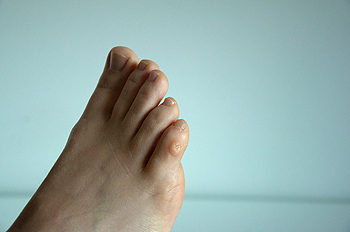April 2025
Managing Corns and Calluses

Corns and calluses are thickened, hardened areas of skin that develop from repeated friction or pressure. Corns typically form on the top or side of the toes, while calluses are more common on the soles of the feet. Both can cause discomfort, pain, or sensitivity, especially when pressure is applied. Corns often have a hard center surrounded by inflamed skin, while calluses appear as thick, rough patches. The main causes of corns and calluses include wearing ill-fitting shoes, abnormal foot structure, or frequent walking or standing. They can also develop from activities that put pressure on certain areas of the feet, like running or wearing high heels. A podiatrist can help by carefully removing the corns or calluses, recommending proper footwear, and suggesting ways to reduce friction. They can also address any underlying foot problems that contribute to the condition. If you have painful corns or calluses, it is suggested that you schedule an appointment with a podiatrist.
Corns can make walking very painful and should be treated immediately. If you have questions regarding your feet and ankles, contact Dr. Ronald K. Olm of Grand Traverse Foot & Ankle Center. Our doctor will treat your foot and ankle needs.
Corns: What Are They? And How Do You Get Rid of Them?
Corns are thickened areas on the skin that can become painful. They are caused by excessive pressure and friction on the skin. Corns press into the deeper layers of the skin and are usually round in shape.
Ways to Prevent Corns
There are many ways to get rid of painful corns such as:
- Wearing properly fitting shoes that have been measured by a professional
- Wearing shoes that are not sharply pointed or have high heels
- Wearing only shoes that offer support
Treating Corns
Although most corns slowly disappear when the friction or pressure stops, this isn’t always the case. Consult with your podiatrist to determine the best treatment option for your case of corns.
If you have any questions please feel free to contact one of our offices located in Traverse City and Kalkaska, MI . We offer the newest diagnostic and treatment technologies for all your foot and ankle needs.





